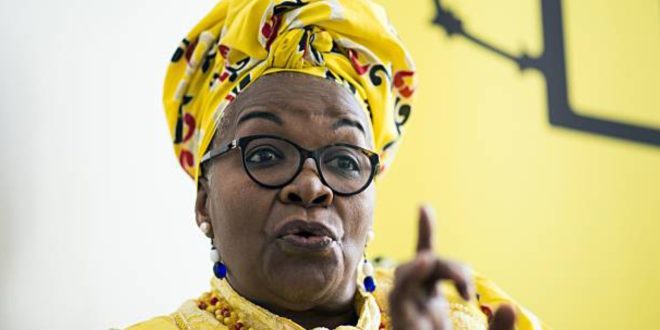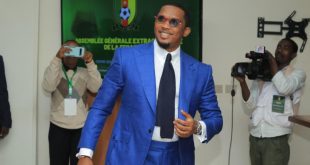As Cameroon gears up for presidential elections in October, the political landscape is heating up. But for renowned Cameroonian lawyer Alice Nkom, head of the Network of Human Rights Defenders in Central Africa (Reddhac), the upcoming polls are less a source of hope and more a cause for alarm. In a recent interview with Deutsche Welle, Nkom did not mince words, declaring that President Paul Biya “does not take his people into account.”
Nkom, a prominent voice for justice and human rights in Cameroon, is launching a campaign to engage civil society and impress upon all candidates the pressing concerns of the Cameroonian people – with rights and liberties at the forefront. Her deep-seated disappointment stems from decades of unfulfilled promises and a system she believes is rigged against the populace.
A Nation on Edge: Fear, Frustration, and a President Clinging to Power
When asked about the upcoming elections, Nkom confessed, “I admit they scare me.” Her fear is rooted in the unprecedented longevity of President Biya’s rule. Having held office for 43 years, Biya, now over 90, is widely expected to seek re-election. “It leaves traces,” Nkom asserts, describing a palpable sense of “fed up” among the populace who are desperate for immediate change.
Nkom’s analysis of Biya’s intentions is stark: “The President of the Republic has no intention of rejoining his people among the people; he knows that there is suffering there, on the level where we are. He knows that salvation is where he is.” When pressed about a “life after power,” Nkom’s response was sharp: “Yes, but that’s what you say. Otherwise, why has he been in power for 43 years? Why has he been a candidate for 43 years?”
She dismissed the notion that Biya is merely swayed by his entourage. “How can it be his entourage? He is the president, he has a contract with us, with the people. Who is the entourage? We don’t know them!” She firmly believes Biya is not easily influenced by those he himself appointed.
The Sovereign Power of the People: A Call for Genuine Elections
A central theme in Nkom’s campaign is the need for the Cameroonian people to exercise their “sovereign power” through the ballot box. She emphasizes that voters must be empowered to truly choose their leader, the “manager of their lives for seven years.”
Nkom, who admits to having voted for Biya in the past, revealed why she no longer supports him: “President Biya’s regime – and that’s why I’m no longer with him… I see that he is someone who doesn’t take his people into account. And I defy anyone to say that what I’m saying is not founded.”
Her most scathing critique is directed at the electoral process itself, which she describes as plagued by “electoral fraud.” Nkom highlights a “fraud machine” embedded in the very texts and appointments of those responsible for overseeing elections and proclaiming results. “This means that, whatever the people may have done by voting en masse, if it is against him (Paul Biya), the President of the Constitutional Council who proclaims the results can take one person’s figures and proclaim them as another’s. It’s there and it’s prepared for that.”
Human Rights and the Path Forward: Challenges for the Opposition
The conversation circled back to the initial question: Are human rights concerns emerging in the discourse of political actors? For Nkom, it all comes back to Biya’s grip on power. “There is no separation of powers in Cameroon, not at all.”
While other presidential hopefuls are speaking out, Nkom remains cautious. “Yes, of course, they say things, but you have to understand that everyone talks. But we don’t yet know if the people who are talking today, whom we consider to be tomorrow’s candidates, we don’t know if they will really be candidates. Because there are still many obstacles to overcome!”
She cited Maurice Kamto of the MRC and Joshua Osih of the SDF as examples, highlighting the distinct challenges they face. For Kamto, his “problem” is being a “serious candidate” who draws “incredible crowds” both within Cameroon and internationally. His past experience as a delegated minister of justice also means he understands the inner workings of the system, making him a formidable opponent in Biya’s eyes.
Alice Nkom’s powerful testimony offers a sobering look at the political landscape in Cameroon ahead of the presidential elections. Her call for genuine democratic expression and an end to electoral manipulation serves as a stark reminder of the urgent need for human rights and the will of the people to prevail.
 CameroonOnline.org Cameroon news, Actualité Camerounaise, live Web TV & Radio, World News and a lot more
CameroonOnline.org Cameroon news, Actualité Camerounaise, live Web TV & Radio, World News and a lot more





One comment
Pingback: “Paul Biya Disregards His People”: A Stark Warning from Cameroonian Human Rights Lawyer Alice Nkom - Cameroun Post